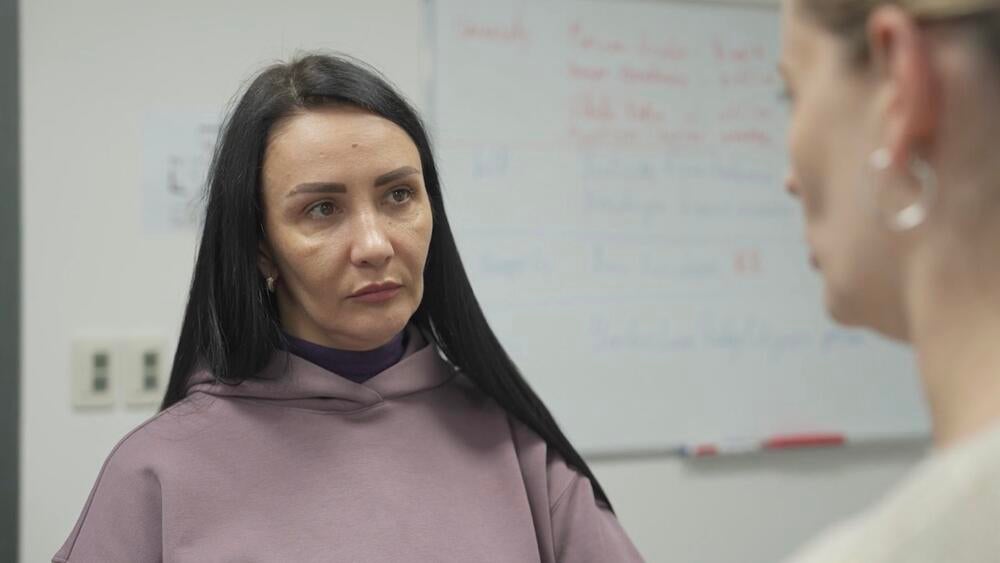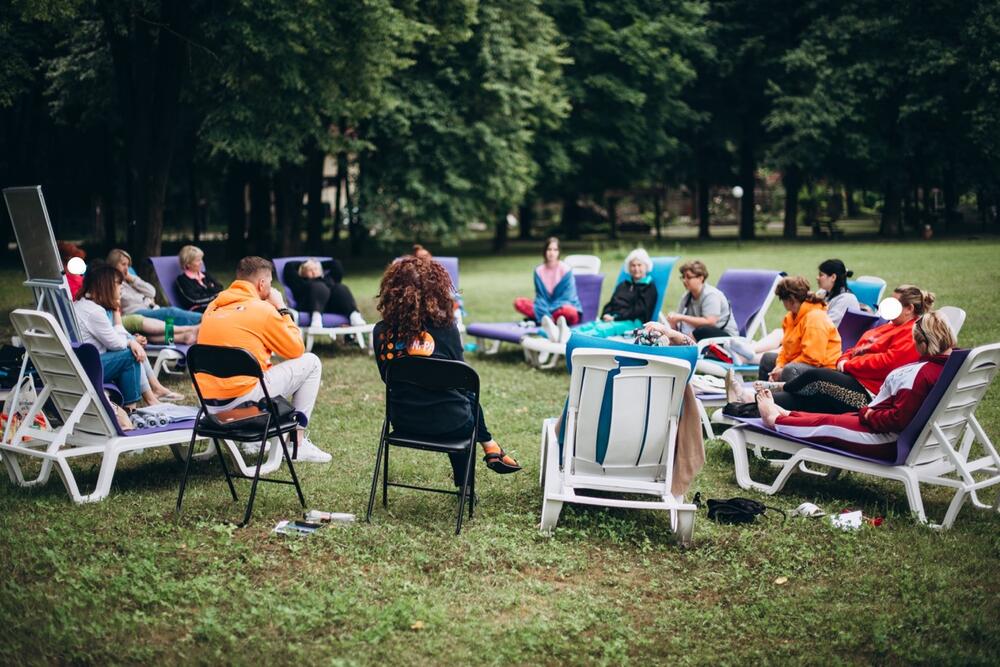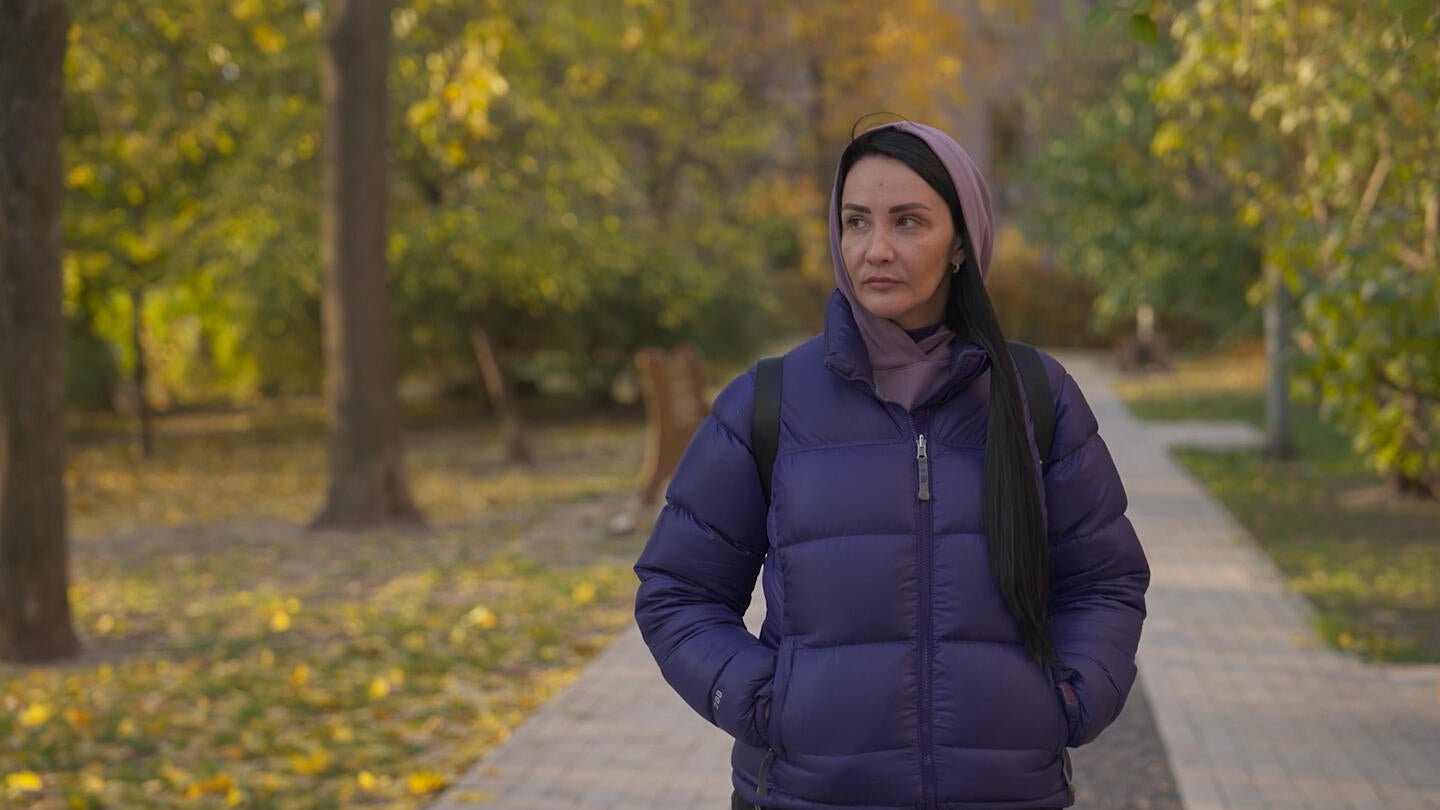For nearly two years, Yulia was held captive in the Russian-occupied Donetsk region, not knowing what’s with her children. During this time, she had no contact with her children, no idea if they were safe — or if she would ever see them again.
“They said, ‘The mother isn’t in the Donetsk People’s Republic, so the children will go to an orphanage’... I was released through a prisoner exchange on October 17, 2022. With the help of the Ministry of Reintegration of Ukraine, the children were brought back. The struggle lasted two months, and in December 2022, they arrived in Kyiv,” Yuliia recalls.
The reunion came in the middle of another airstrike. Sirens howled and missiles flew overhead — but they were together.
“It’s sad that almost two years were lost, but I was happy. The children had returned.”
After her release, Yulia began her long path to recovery from the horrors she endured in captivity, with the support of a UNFPA rehabilitation program designed specifically for women who have experienced gender-based violence, particularly conflict-related sexual violence.
“It’s a support group for women who have survived sexual violence and captivity,” she explains. “Everything was so thoughtfully organized. There were group sessions, and if you wanted, individual ones too.”
Through the program, Yulia worked with psychologists to process the trauma she endured. She began to heal.
“I learned to deal with panic attacks. That was a big change for me. There was a time when I’d have them three or four times a day. I even called an ambulance once because I felt like my life had stopped. But with the help of this psychologist, I learned how to manage them.”

Psychologist Tetiana Zvenyhorodska, one of the program’s experts, describes the healing process as gradual but powerful:
“The goal is to identify the experience, how it affects the person today, how it has changed their life—and then move forward, step by step. It’s like growing wings.”
Since Russia launched its full-scale invasion, Ukraine has faced unprecedented levels of violence. However, much of the trauma inflicted by war remains invisible to society. The United Nations estimates that the number of people who have suffered sexual violence during the conflict is 10 to 20 times higher than official figures. Letitia Anderson, UN Special Representative for UN Action Against Sexual Violence in Conflict, emphasized the global urgency of this work:
“The UN is reaching and supporting thousands of survivors of wartime sexual violence who had once been invisible. But we urgently need sustained political will and resources equal to the scale of the challenge.”
In Ukraine, survivors like Yulia are no longer invisible. As Government Commissioner for Gender Equality Policy, Kateryna Levchenko notes, they are now leaders in shaping change:
“Survivors of sexual violence today are united, active, and inspiring. I’m proud that they’ve found the strength to turn their pain into energy for serving Ukraine.”
In collaboration with the Government of Ukraine and non-governmental organizations, UNFPA Ukraine is providing comprehensive support to survivors of conflict-related sexual violence (CRSV) through various services and programs. One such initiative is a rehabilitation program designed specifically for women and girls who have experienced gender-based violence, including those who were held in captivity or lived in previously occupied regions.

The two-week rehabilitation program offers specialized care to help participants stabilize their emotional state, reduce post-traumatic symptoms, regain a sense of control, and rebuild their self-esteem and confidence. Through a combination of psychological support, self-help techniques, and social reintegration activities, women learn to identify and manage triggers, practice self-care, and interact effectively with others.
The rehabilitation program is free and follows a holistic, trauma-informed model that prioritizes survivors' autonomy, strengths, and well-being. By fostering cooperation, empowerment, and self-reliance, the program helps women rebuild their lives with dignity and confidence.
For Yulia, that strength is still unfolding — but her message is clear:
“Rehabilitation is important. This program is important. And I thank everyone who helped make it possible.”
“Rehabilitation is important”: Yulia’s journey from captivity to healing


